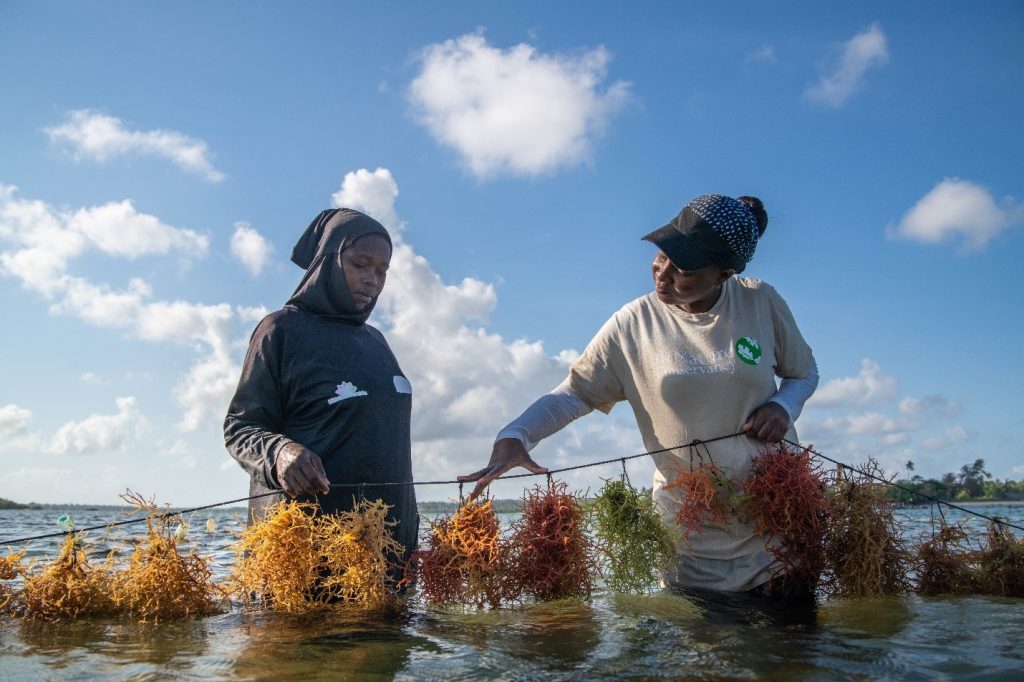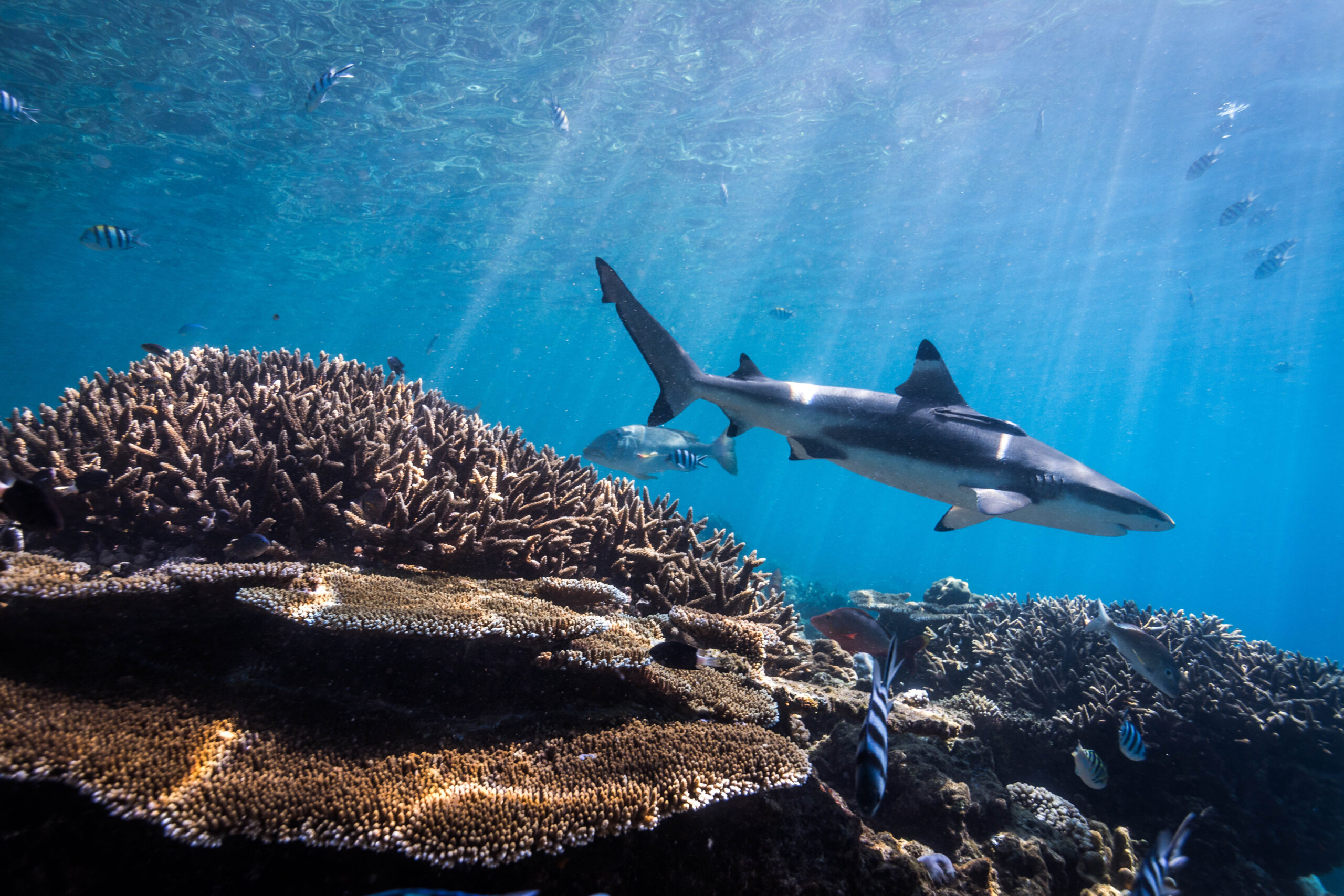
The Tumbe seaweed pilot site in Pemba. Photo © Roshni Lodhia
Sustainable seaweed aquaculture, when farmed well, can relieve pressure on wild stock fishery resources and provides numerous ecological, social, political, and economic benefits. In Tanzania’s Zanzibar Archipelago, seaweed has become the third largest source of income and accounts for nearly 90% of its marine exports. However, warming oceans, impacts of coastal development, limited aquaculture knowledge, and poor seed stocks are combining to make it harder for farmers to sustainably and cost effectively keep up their yields and maintain their livelihoods through seaweed farming.
During this webinar, George Maina gave an overview of The Nature Conservancy’s restorative seaweed initiative and aquaculture efforts in the Western Indian Ocean. Mondy Muhando, also from The Nature Conservancy, shared successes and lessons learned on a recently launched community-empowerment and environmental-training program that helps address challenges to farming seaweed sustainably in Zanzibar. Protecting these important marine environments while supporting seaweed aquaculture, especially through education and partnering with local women, is essential to conserving Zanzibar’s waters and wildlife.
Resources
- Download the PDF of additional questions answered by the speakers. Topics include farming methods, finances, and climate change.
- Development of Sustainable Aquaculture in Coastal Communities
- Aquaculture Toolkit
- The Promise of Restorative Aquaculture Solutions
- Building Capacity for Sustainable Seaweed Cultivation in Zanzibar
If you do not have access to YouTube, please download the recording or email us at resilience@tnc.org.


